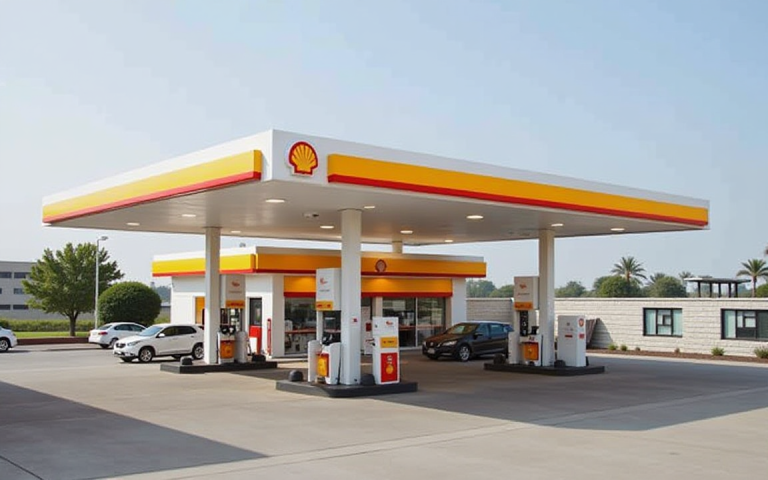Shell PLC disclosed on Friday that its net profit for the first quarter experienced a substantial 28% year-over-year decrease, settling at $5.58 billion.
Despite this considerable decline, the reported profit figure surpassed the anticipations of financial analysts, indicating a stronger-than-expected underlying performance, according to a Reuters report.
Share repurchase program to continue
The energy giant also announced its decision to maintain the current rate of its share repurchase program, signaling confidence in its financial standing and future prospects.
The optimism comes even in the face of a challenging market environment characterised by declining crude oil prices and diminished profitability in refining operations compared to the previous year.
This strategic move to continue rewarding shareholders through buybacks underscores Shell’s commitment to delivering value amidst volatile market conditions.
Shell announced a continuation of its shareholder return program, stating its intention to repurchase $3.5 billion of its own shares over the subsequent three-month period.
This buyback represents the fourteenth consecutive quarter in which the energy giant has committed to returning at least $3 billion to its shareholders through share repurchases.
The ongoing buyback program reduces the total number of outstanding shares, which can lead to an increase in earnings per share and potentially boost the company’s stock price.
Investors often view such programs favorably as a sign of financial strength and disciplined capital management.
Buyback program differs from rival BP
Shell’s continued share buyback program presents a notable divergence from its competitor BP, which has significantly reduced its own buyback initiatives in the current year.
BP’s decision to curtail buybacks stems from a strategic imperative to strengthen its balance sheet.
In contrast, Shell maintains a more robust financial position, evidenced by its lower gearing ratio of 18.7% compared to BP’s higher ratio of 25.7%.
Gearing, a key financial metric, represents the proportion of a company’s financing that comes from debt relative to equity.
Shell’s lower gearing suggests a lesser reliance on debt financing and a stronger equity base, potentially affording it greater flexibility in pursuing shareholder returns through buybacks while maintaining financial stability.
Shell’s adjusted earnings, which the company defines as net profit, were $5.58 billion in the first quarter.
This figure exceeded the average analyst forecast of $4.96 billion from a company-provided poll but fell short of the $7.73 billion reported in the same period last year.
In a March strategy update, Shell announced plans to increase shareholder returns through higher liquefied natural gas sales, primarily via share repurchases.
The company also stated it would reduce investments through 2028 and consider selling or shutting down certain chemicals operations.
Shell confirmed on Friday its previously announced decreased annual investment budget for the current year, which is set at $20-$22 billion.
Refining margin falls
The indicative refining margin was $6.2 per barrel.
This represents a decrease from $12 per barrel in the previous year but an increase from $5.5 per barrel at the close of the prior year.
During the first quarter of the year (January-March), the average global benchmark price for Brent crude oil was approximately $75 per barrel.
This is a decrease from the corresponding period last year, when the average price was about $87 a barrel.
Oil prices were pressured by lower demand and concerns over a significant oversupply this year.
The ongoing trade tensions between the US and China have also cast a shadow over fuel demand from the Asian giant, the biggest importer of crude oil.
Despite the negative impact of expiring hedging contracts, Shell reported its gas trading performance was consistent with the prior quarter.
This contrasts with BP, which cited a poor gas trading outcome as a factor that negatively affected its first-quarter earnings.
The post Shell Q1 profit falls 28% but tops analyst expectations appeared first on Invezz

